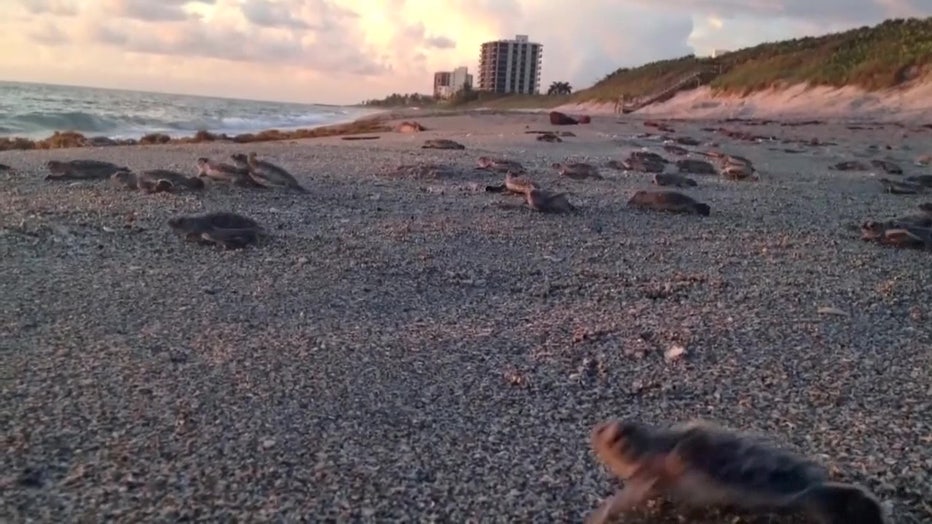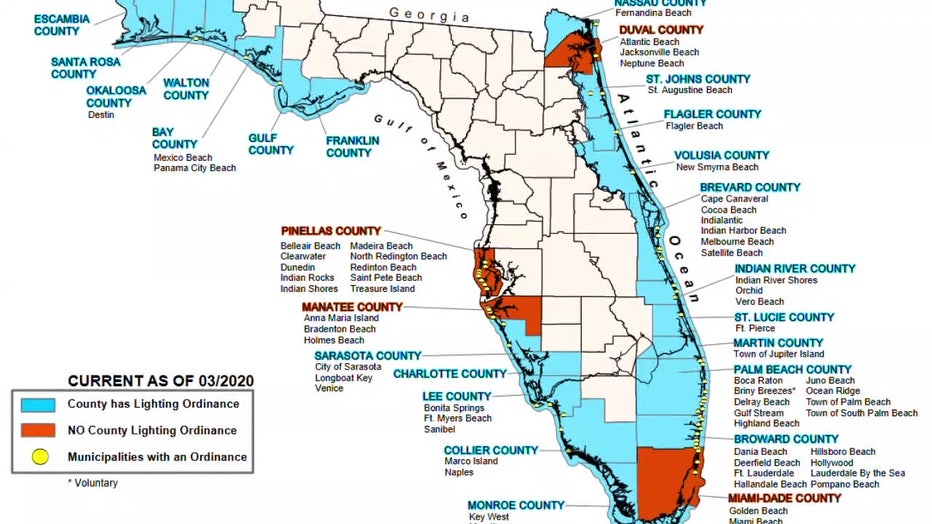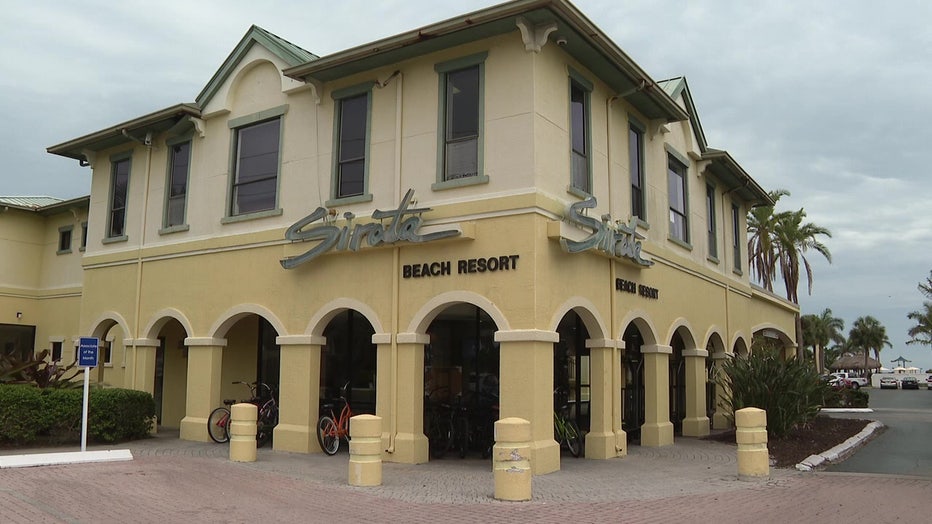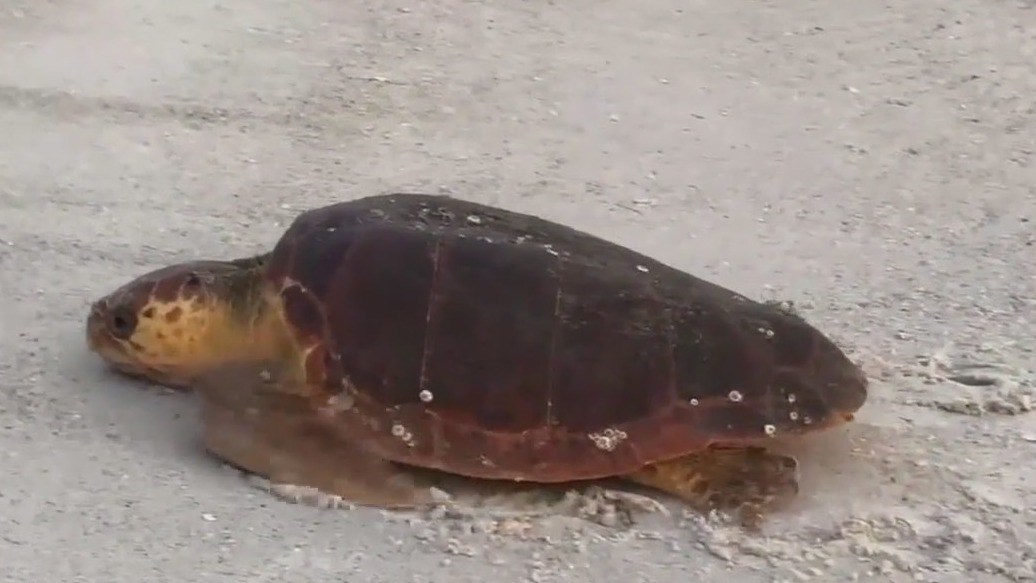St. Pete Beach hotel expansion debate illuminates sea turtle ordinance issues
ST. PETERSBURG, Fla. - On Tuesday, St. Pete Beach City Commission is expected to make a decision about allowing a major hotel expansion at the Sirata property.
The hotel's new owners want to build a 10-story JW Marriott and a 9-story Hampton Inn in addition to renovating the current Sirata.
In doing so, the hotel promises it will do better for sea turtles. The current building is not in compliance with the city’s lighting ordinance, but experts say it's far from the only one.
At a special meeting Wednesday, neighbors documented the current building is 95 percent out of compliance for the sea turtle lighting ordinance.
The ordinance seeks to cut down on artificial, bright white lights during nesting season, which can cause the baby turtles to become disoriented and not make it back to the ocean.

Attorneys for the hotel ownership argue they, like many other buildings in town, were built before the ordinance existed, and they were not legally required to update the lighting.
But as new owners- they said they are already taking steps to be in compliance and will build two new hotels, which will be held to the highest of environmental standards through the licensing process.
"I don’t know that there is any other development in St. Pete that’s agreed to go back and retrofit an existing building as part of a new agreement to protect the sea turtles, but we’ve agreed to do that," said attorney Elise Batsel. "Not only will you have two new hotels to protect the turtles, but the existing building will be retro fitted.
Stacey Gallagher with the Sea Turtle Conservancy says new hotels and new buildings face stricter requirements then existing ones, when it comes to sea turtle light ordinances.

"There are much stricter standards that property owners have to follow so that, you know, that new hotel is required to have the most stringent standards when it comes to wildlife-friendly lighting. So that's great. And those new hotels often kind of serve as the example to the existing hotels," said Gallagher.
READ: Animal rescues are finding solutions for 'dog dumping' in Tampa Bay Area
"Florida is home to 90% of all sea turtle nesting in the U.S. So basically, the decisions that we make here in Florida on our beaches are super important. And one of the main threats that sea turtles face is disorientation by artificial lighting. So what these ordinances do is they help regulate the type of lighting that's visible from the beach at night," said Gallagher.
According to Florida Fish and Wildlife, Pinellas County is one of four- in the entire state without a county ordinance- though a majority of its local communities have one.
Gallagher said her organization studied all 113 local ordinances and found 80 percent have room to do better compared to the state model.

"So basically, we found that there is a lot of work to be done when it comes to improving language and enforcement, but that when you have good language and enforcement, you can reduce disorientation and you can save sea turtles. So that's just what I want to drive home, is that this problem is fixable.
For those existing hotels and businesses not in compliance, Gallagher says the conservancy also has a program to help property owner’s retro fit their lighting. She said it can help owners save on electric bills but can also be important to consumers.
"Gen Z and millennials have a lot of buying power, and research shows that they want to stay at hotels, they want to patronize businesses that are doing the right thing for wildlife," she said.
WATCH FOX 13 NEWS
SIGN UP: Click here to sign up for the FOX 13 daily newsletter


